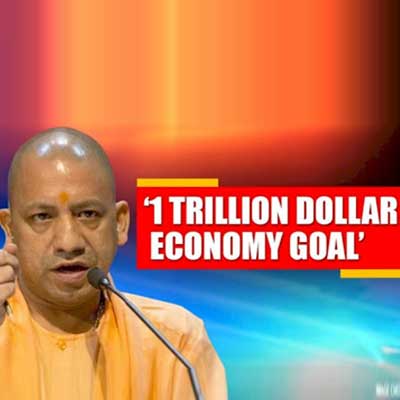The states of India are beginning to wake up. They have realised that they cannot depend on the Centre if they have to keep their promises to their electorate. The CAG has found that the Union Government, in the very first two years of GST implementation, wrongly retained Rs.472.72 billion of GST compensation cess that was specifically intended to compensate states for loss of revenue. Further, the GST shortfall is estimated at Rs. 3 trillion, of which Rs. 970 billion is due to GST implementation and the balance is owing to COVID-19. With cess collection expected at Rs.650 billion, states are likely to witness a shortfall of Rs.2.35 trillion. The Government claims that 18 states have agreed to go ahead with the option to use a special dispensation from the Reserve Bank of India (RBI) for a sum of about Rs.970 billion shortfall, and it is planning to go ahead with voting in the next GST council meet.
The need to attract investment into the states has never been greater. Some states have already got their act together, reformed their labour policies and are offering incentives for investments.
Uttar Pradesh, for one, went ahead and decided to tap private lenders for funding the 628-km Ganga Expressway project, which is estimated to cost over Rs.360 billion. The mega project will be the world’s longest access-controlled expressway, when completed. The Adityanath government has sourced public-sector bank credit for its various ongoing and proposed expressway projects, including Ganga Expressway, Purvanchal Expressway, Bundelkhand Expressway and Gorakhpur Link Expressway. The UP Expressway Industrial Development Authority (UPEIDA) Board has approved a proposal to raise Rs.29 billion from HUDCO for land acquisition costs of the Ganga Expressway project, which entails the acquisition of 6,556 hectare. The UPEIDA Board has also cleared raising loans totalling Rs.59 billion for Bundelkhand Expressway. Further, from just two operational airports to seven now, development work is being carried out at 17 airports in Uttar Pradesh over the past 42 months.
Uttarakhand has also lined up six mega projects to be launched under the Namami Gange Mission, which includes STPs and a museum, among others. Not to be left behind, the poll-going Bihar will also see a largesse of Rs.160 billion worth of projects before the elections. A sewage treatment plant under the Namami Gange project, water supply schemes, riverfront development projects, a railway bridge electrification project, new railway lines and bridges and construction of highways and bridges are slated to be inaugurated. Assam, too, has announced infrastructure projects worth nearly Rs.120 billion, which include the construction of colleges, flyovers and road corridors across the state. Besides government funds, the state has 12 other road projects worth Rs. 60 billion funded by the ADB and Asian Infrastructure Investment Bank to begin soon. Odisha has also cleared proposals worth Rs.150 billion, which include investments in infrastructure, tourism, metals and cement.
As long as the SPVs created observe the discipline of land acquisition and project execution as scheduled, funds could be raised and repaid as construction risks get mitigated with the state government backing the projects. This is likely to be the infrastructure development model for coming years as states come into their own to build their future.
Meanwhile, the National High-Speed Rail Corporation has also announced plans for seven new projects at an expected cost of around Rs.10 trillion. It has awarded tenders of Rs. 200 billion to three bidders comprising seven Indian companies, including AFCONS, IRCON and JMC Projects in one consortium and NCC, Tata Projects and J Kumar in another, while L&T has bid on its own. A tender for a 237-km corridor, part of the Gujarat section of the Mumbai-Ahmedabad project, is likely to consume 75 lakh million tonne (mt) of cement, 21 lakh mt of steel, and 1.4 lakh mt of structural steel during construction. Another tender for 28 steel bridges, which will consume 70,000 mt of steel, is underway; companies in the race include L&T, Tata Projects, Braithwaite, AFCONS, Bridge & Roof Co, NCC, JMC, Rahee Infra, ISGEC Heavy Engg and IHI Infrastructure Systems.
Given the potential of such projects to provide employment to 90,000-odd people, apart from the benefit of not affecting our liquidity and bringing in long-term Japanese debt for infrastructure building, our economy can be rebuilt expeditiously.

- Pratap Padode, Founder & Editor-in-Chief Construction World & FIRST Construction Council





















